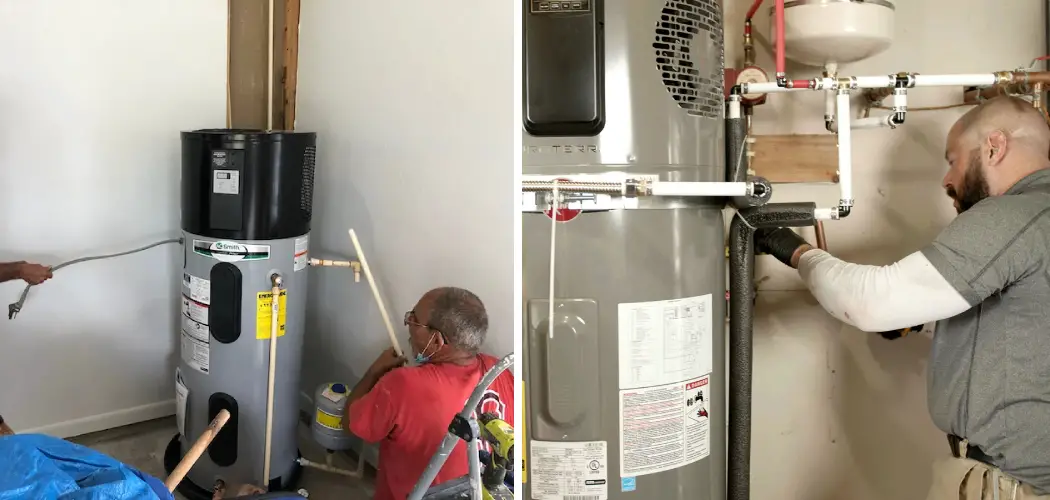Are you tired of your old water heater not providing enough hot water for your needs or costing too much? Have you been considering installing a heat pump water heater to save money and energy, but don’t know where to start? Look no further – this blog post has all the information you need on how to install a heat pump water heater.
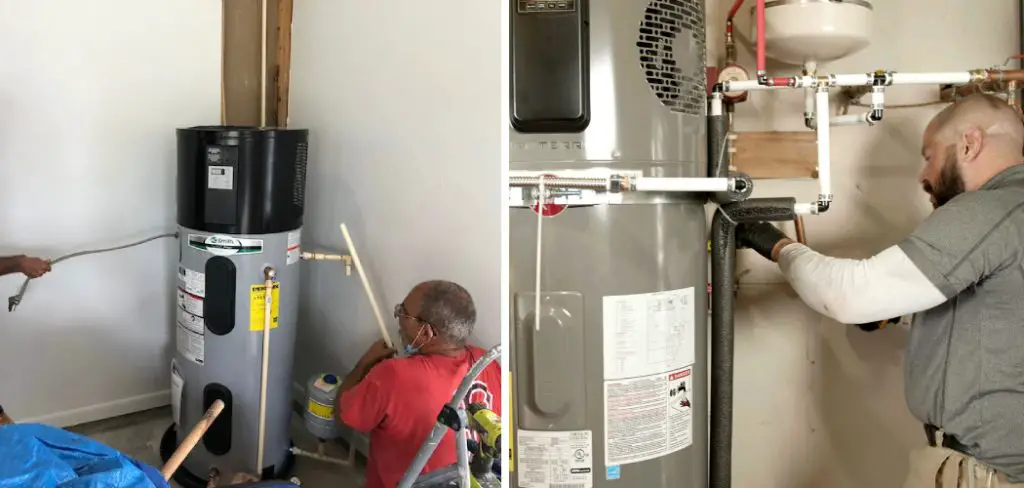
Here, we’ll break down everything about heat pumps in general, why they are beneficial, what types of heaters exist, and finally provide detailed instructions on how to install a heat pump water heater This guide will allow even novice DIYers who have never worked with plumbing before confidently tackle their next project! So buckle up and get ready for an amazing journey into the world of sustainable living!
Why May You Want to Install a Heat Pump Water Heater?
1 . To Save Money
One of the most common reasons why you may want to install a heat pump water heater is to save money. Compared to traditional electric or gas-powered water heaters, heat pumps are known for their energy efficiency and cost-effectiveness. They require less electricity to operate, which means lower utility bills in the long run.
Moreover, heat pump water heaters are eligible for tax rebates and incentives, adding to their affordability.
2. For Environmental Reasons
Another reason why you may want to install a heat pump water heater is for environmental reasons. Heat pumps use less electricity and produce fewer greenhouse gas emissions compared to traditional water heaters. By switching to a heat pump water heater, you can reduce your carbon footprint and contribute towards a more sustainable future.
3. To Improve Indoor Air Quality
Heat pump water heaters also have the added benefit of improving indoor air quality. Traditional gas-powered water heaters emit carbon monoxide and other harmful gases, which can be a health hazard if not properly ventilated. On the other hand, heat pumps do not produce any combustion byproducts, making them safer for your home’s air quality.
4. To Increase Durability and Maintenance Ease
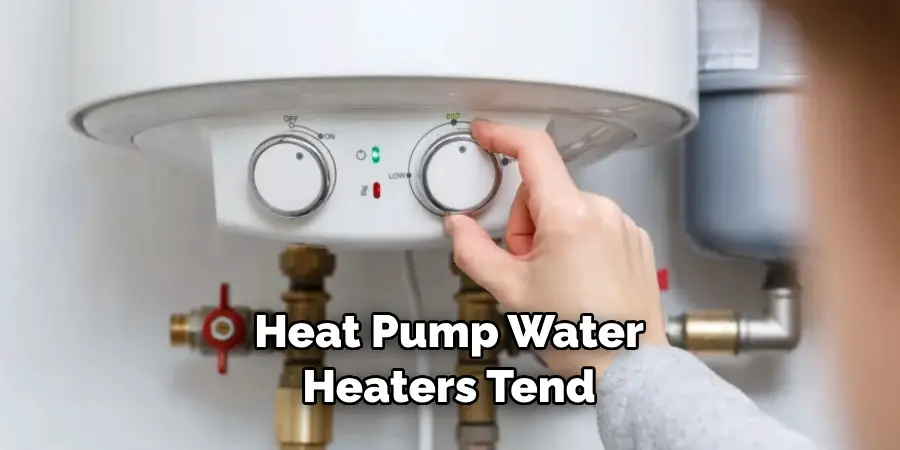
Heat pump water heaters tend to have a longer lifespan compared to traditional water heaters. This is because they do not have any internal components that can rust or corrode, which can lead to expensive repairs or replacements. Additionally, heat pumps do not require much maintenance, making them a hassle-free option for homeowners.
5. To Save Space
Heat pump water heaters are typically smaller in size compared to traditional water heaters, making them a great option for homes with limited storage space. They also do not require any venting or exhaust pipes, freeing up even more space. This can be especially beneficial for those living in apartments or smaller homes.
How to Install a Heat Pump Water Heater in 5 Easy Steps
Step 1: Gather Your Tools
Before you start installing your heat pump water heater, make sure that you have all the necessary tools. You will need a drill, a screwdriver, a wrench, pliers, and pipe cutters. So make sure you have these tools ready before you begin.
Step 2: Choose the Right Location
The next step is to choose the right location for your heat pump water heater. It needs to be installed in a well-ventilated area with access to an electrical outlet and a nearby drain. Make sure there is enough room around the unit for easy maintenance and repairs. Avoid installing it in an unheated space, as this can decrease its efficiency.
Step 3: Prepare the Area
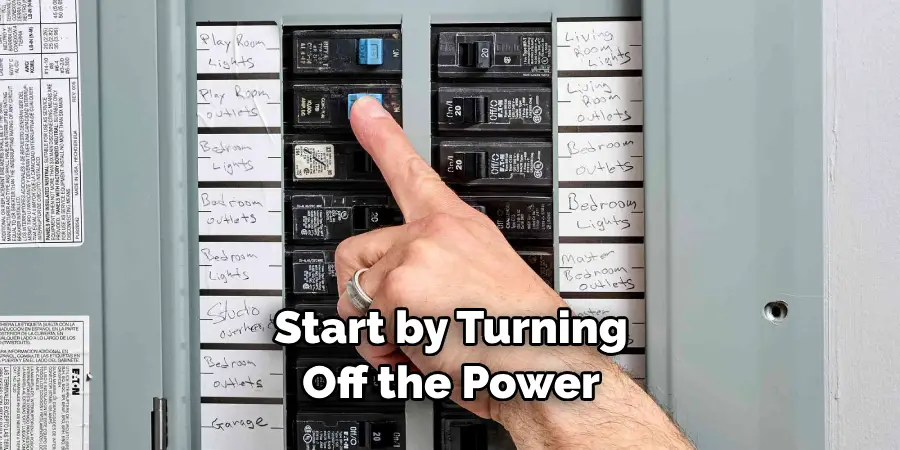
Before you start installing your heat pump water heater, you need to prepare the area. Start by turning off the power and shutting off the water supply. Drain the old water heater completely and remove it if necessary. Then clean up any debris or dirt from the installation area. Once everything is clean and dry, you can move on to the next step.
Step 4: Install the Water Heater
Now it’s time to install your heat pump water heater. Follow the manufacturer’s instructions carefully and make sure all connections are secure. You may need to use a mounting bracket to secure the unit in place.
You should also make sure that the condensate drain line is properly connected and routed to a nearby drain. Once everything is connected, turn on the water supply and check for any leaks.
Step 5: Power Up and Test
The final step is to power up your heat pump water heater and test it out. Make sure that the unit is properly powered and all settings are adjusted according to your preferences. Let it run for a while and make sure there are no unusual noises or leaks. If everything looks good, then congratulations – you have successfully installed your heat pump water heater!
Some Extra Tips to Install a Heat Pump Water Heater
1 . Plan Ahead
Installing a heat pump water heater requires some preparation, so make sure to plan ahead before beginning the installation process. Begin by choosing the right location for your unit, taking into consideration factors such as accessibility, space and ventilation. Once you have chosen the ideal spot, ensure that you have all the necessary tools and materials ready. This will help make the installation process go smoothly and efficiently.
2 . Follow Manufacturer’s Instructions
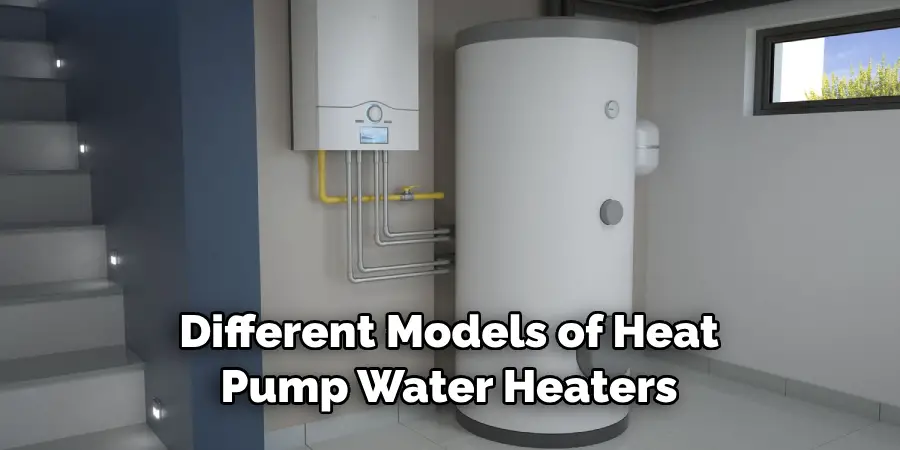
Different models of heat pump water heaters may have different installation processes, so it is important to carefully read and follow the manufacturer’s instructions. These instructions will also include important safety precautions that you should be aware of before starting the installation.
Following these instructions will ensure that your unit is installed correctly, reducing the risk of any potential issues in the future.
3 . Seek Professional Help, If Needed
If you are not confident in your abilities or do not have the necessary tools to install a heat pump water heater, it is best to seek professional help. Trying to install the unit yourself without proper knowledge and equipment can be dangerous and may result in damage to the unit.
Hiring a licensed plumber or HVAC technician will ensure that the installation is done correctly and safely.
4 . Check for Rebates and Incentives
Installing a heat pump water heater may qualify you for rebates or incentives from your local utility company or government. These can help offset the cost of purchasing and installing the unit, making it even more affordable in the long run. Be sure to check with your utility company or research any available programs before purchasing your heat pump water heater.
Frequently Asked Questions
What Precautions Should I Take Before Installing a Heat Pump Water Heater?
Before installing your heat pump water heater, there are a few precautions you should take to ensure the process goes smoothly and safely. These include: Make sure to check with your local government to see if there are any regulations or permits required for installing a heat pump water heater in your area.
Also, make sure to turn off the power to your current water heater before disconnecting it. Finally, gather all necessary tools and equipment and read through the installation manual provided by the manufacturer thoroughly.
How Long Does It Take to Install a Heat Pump Water Heater?
The installation time for a heat pump water heater can vary depending on the type of unit, your plumbing system, and any additional complications that may arise. On average, it takes around 3-4 hours for a professional installer to complete the installation process.
However, if you are installing it yourself, it may take longer as you become familiar with the equipment and follow all safety precautions.
Can I Install a Heat Pump Water Heater Myself?
While it is possible to install a heat pump water heater yourself, it is recommended to hire a professional installer. This is because the installation process involves working with electricity and plumbing, which can be dangerous if done incorrectly.

A professional installer will have the necessary knowledge and experience to ensure the installation is done correctly and safely.
Do I Need to Make Any Changes to My Plumbing System?
In most cases, a heat pump water heater can be installed using the existing plumbing system. However, it is recommended to consult with a professional installer or plumber to ensure your plumbing system is compatible and able to handle the new unit.
In some cases, minor adjustments may need to be made, but this will depend on your specific setup.
How Much Does It Cost to Install a Heat Pump Water Heater?
The cost of installing a heat pump water heater can vary depending on several factors, such as the type and size of unit, your location, and any additional labor costs.
On average, it can cost between $800-$1500 for a professional installation. However, if you are installing it yourself, you will save on labor costs but may incur additional expenses for tools and equipment. It is important to consider both options and determine which is best for your budget and needs.
Conclusion
One of the greatest benefits of installing a heat pump water heater is the energy savings that you can take advantage of over time. Not only does it save you money on your monthly utility bills, but it also helps the environment by conserving energy. With the right instructions and guidance from professionals, your heat pump water heater installation process can be seamless and effective.
Now that you know how to install a heat pump water heater, you’ll be well-prepared to make this smart investment in much-needed energy efficiency. Do some research on the models available before choosing which one is right for you, and start enjoying all the benefits of a heat pump water heater today!

